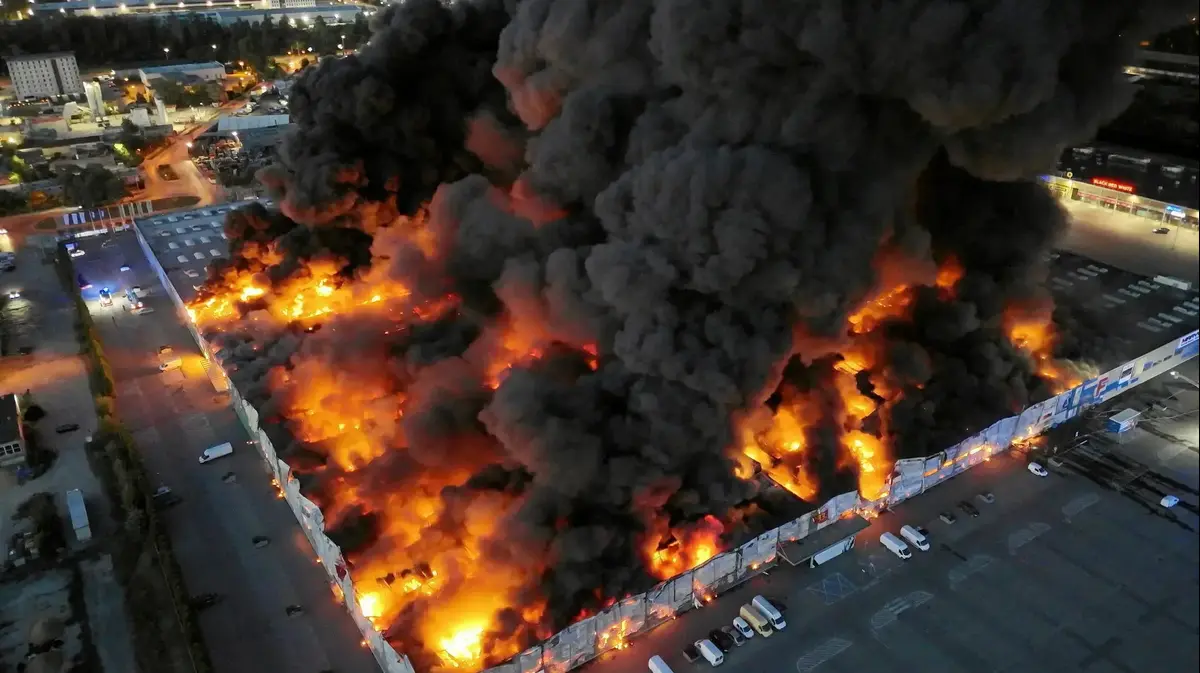Russia's Alleged Sabotage and Arson Campaign Across Europe
European security services are on high alert due to a series of fires and mysterious attacks on critical infrastructure in the United Kingdom, Germany, Poland, Estonia, and Lithuania. These incidents are suspected to be orchestrated by Russia as part of a concerted effort to destabilize the West in retaliation for its support of Ukraine.
Concerns were heightened following a summit of foreign and defense ministers in Brussels, where Dutch, Estonian, and Lithuanian security officials warned of their national vulnerabilities to these sabotage activities. Poland’s Prime Minister, Donald Tusk, revealed that Polish authorities had arrested nine individuals suspected of carrying out sabotage operations at the behest of Russian intelligence. Their actions included arson, physical attacks, and attempts to interfere with essential infrastructures.
Suspicious Incidents Across the Continent
Authorities in East London are investigating a suspected Russian-linked arson attack targeting units connected to a Ukrainian businessman. In Germany, two German-Russian citizens were arrested for planning sabotage at a military base in Bavaria, while in Paris, graffiti on a Holocaust memorial is believed to be an act commissioned by Russian security services. Lithuania also faced a significant fire at an IKEA branch in Vilnius, with suspicions pointing towards foreign sabotage.
Vilmantas Vitkauskes, head of Lithuania's National Crisis Management Center, noted the similarities between the Vilnius IKEA fire and other arson attacks in Europe, suggesting a broader pattern of systematic attempts to undermine stability in the region. The police across Europe have increased their vigilance and called for businesses and organizations, particularly those aiding Ukraine, to boost their security measures.
The Role of Social Media and Cyber Threats
European security officials underline the usage of social media platforms like Telegram by Russian operatives to coordinate these attacks. The perpetrators often receive payments in cryptocurrencies and are typically foreign nationals recruited to execute these attacks while leaving minimal traces of their connections.
NATO Secretary General Jens Stoltenberg emphasized the increased activity by Russian intelligence across the alliance and the necessity for member countries to enhance their surveillance. "We have seen several arrests throughout the alliance in different NATO countries of people accused of arson or sabotage," Stoltenberg stated during a NATO-Ukraine Council meeting in Brussels.
Calls for Enhanced Security and Vigilance
Various European leaders express the need for heightened security across critical infrastructures, including electricity and water supplies, and essential services. The Lithuanian National Crisis Management Center has urged a thorough check and maintenance of fire safety systems in vulnerable facilities. In addition, Dutch Defense Minister Keisha Ollongren and other officials have highlighted the importance of preparing for potential espionage and sabotage attempts.
European nations are taking these allegations seriously, focusing on thwarting the hybrid warfare tactics employed by Russia. The current situation underscores the necessity for democratic states to stay united and proactive in dealing with these emerging asymmetric threats.
- The security services across various European countries have ramped up their surveillance and counter-sabotage measures. Authorities have observed that these operations are often carried out by individuals traveling from different countries and deactivating security systems before conducting attacks, suggesting a high level of coordination and planning.
- In response to these threats, businesses, especially those involved in supporting Ukraine or deemed critical, are advised to train their staff, run fire safety drills regularly, and keep their security systems updated. This proactive approach could significantly mitigate the risks posed by such sabotage activities.
- Political leaders across Europe are calling for a consolidated effort to improve cybersecurity measures, as cyber attacks often accompany these physical sabotage efforts. The hybrid nature of these attacks—combining physical sabotage, cyber intrusions, and disinformation campaigns—requires an integrated approach to defense and intelligence sharing among NATO and EU members.






